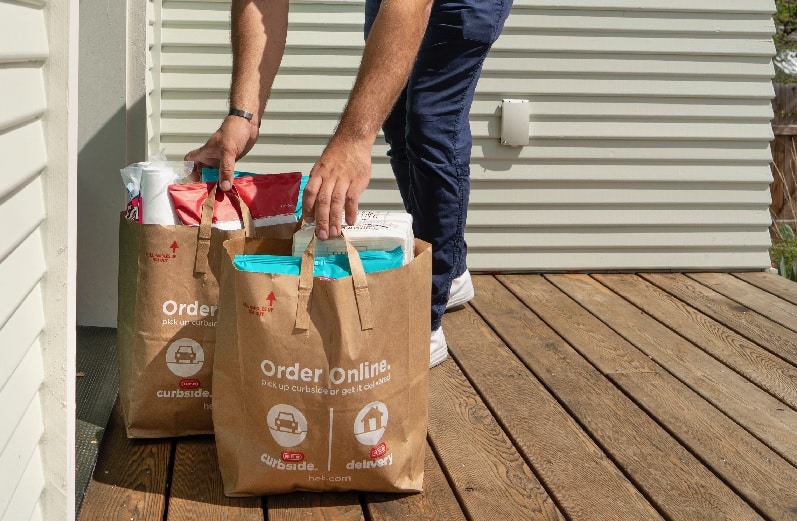
If you order your groceries online, you’re often faced with service fees, delivery fees, price markups and an inability to use paper coupons. But hey, you’re paying for the convenience, right? And people who can afford to have their groceries delivered to their car or to their home don’t really need deals.
Not according to a new study. The retail analytics company dunnhumby has found that, yes, online grocery shoppers do spend more. But they’re also more likely to be struggling financially – dispelling any notion that online grocery shopping is only for the well-to-do who don’t care about saving money.
According to dunnhumby’s new Consumer Trends Tracker, online grocery shoppers spend an average of one-and-a-half times more than in-store only shoppers. The average monthly grocery bill for online shoppers is $594 per month, compared to $388 for in-store only shoppers.
Some of that is due to higher online prices, fewer available promotions and additional fees. But it’s also because online grocery shoppers are more likely to have larger families and pets. That makes them more likely to be concerned about their finances – which might make one wonder why they’re shopping online, then.
“Despite being higher earners on average than brick-and-mortar only shoppers, they are struggling more financially and some reported they have had to skip or cut back on meals,” dunnhumby President for North America Grant Steadman said of online shoppers. dunnhumby found that online shoppers were 6% more likely to have skipped or cut the size of a meal for financial reasons, and 10% more likely to have difficulty covering an unexpected expense.
Nearly three-quarters of in-store shoppers and online shoppers alike agree that it is very or extremely important that the store where they shop has low prices. When push comes to shove, though, in-store shoppers are more likely to switch to a store with lower prices or better deals. But they’re also more likely to stick with their selection once they’ve picked a favorite. In-store shoppers tend to visit an average of three different grocery stores per month, while online shoppers spread their dollars across as many as six different retailers each month – making their choices based on selection, availability or prices.
A number of surveys and studies have concluded that grocers offering online shopping and delivery could attract and retain more shoppers if they made it easier to use coupons. But many of those surveys and studies were before the coronavirus pandemic, when online grocery shopping for the majority of people was seen as more of a sometime convenience than an everyday necessity. When online grocery shopping surged as we were all staying home during the early days of the pandemic, enough people became comfortable with the idea, and stuck with it, so retailers didn’t really need to worry about attracting shoppers with coupons and deals.
A more recent survey, however, found that online shoppers are still interested in saving money. Earlier this year, Insider Intelligence found that 47% of shoppers said free delivery was extremely important to them, 41% said the same about the ability to use coupons, and 36% liked earning rewards and/or loyalty points. “Retailers looking to court cost-conscious customers need to mimic the in-store savings experiences through their digital offerings,” the report advised, because online shoppers “don’t want to give up the ways they save in-store when shopping online.”
Concerns about prices, then, together with the desire for deals, “indicates an evolution from the orthodoxy that the online and omnichannel shoppers value convenience above all and are not price sensitive,” dunnhumby’s Steadman said. “This study suggests that is not always the case.”
So it may be true that you’re paying for the convenience, if you pay more to shop online or have your groceries delivered. But if more retailers consider these surveys’ findings – you may not have to pay quite so much.
Image source: H-E-B















